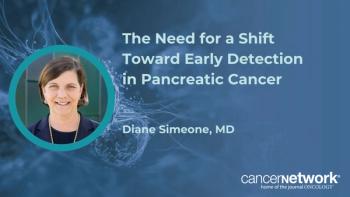
Oncology NEWS International
- Oncology NEWS International Vol 18 No 7
- Volume 18
- Issue 7
Obese young adults are at increased risk of pancreatic cancer
Young adults who are overweight or obese have an increased risk of pancreatic cancer, according to a study out of M.D. Anderson Cancer Center. In addition, the Houston-based researchers found that obesity at an older age is associated with a lower overall survival rate for patients with pancreatic cancer.
Young adults who are overweight or obese have an increased risk of pancreatic cancer, according to a study out of M.D. Anderson Cancer Center. In addition, the Houston-based researchers found that obesity at an older age is associated with a lower overall survival rate for patients with pancreatic cancer. Donghui Li, PhD, and colleagues studied the associations between body mass index (BMI) over a lifetime and pancreatic cancer risk, age at onset, and overall patient survival. The study included 841 patients with pancreatic cancer and 754 healthy individuals matched by age, race, and sex. Height and body weight histories were collected by personal interview starting at ages 14 and taking place over 10-year intervals progressing to the year prior to recruitment (
They found that individuals who were overweight (a BMI of 25-29.9) from the ages of 14 to 39 years or obese (a BMI of 30 or greater) from the ages of 20 to 49 years had an associated increased risk of pancreatic cancer, independent of diabetes status. The association between average BMI (per five-unit increase) and risk of pancreatic cancer was stronger in men than in women.
Articles in this issue
over 16 years ago
Less is more when it comes to serial CA125 testing in ovarian cancerover 16 years ago
Treatment varies widely in chronic myeloid leukemiaover 16 years ago
Oncology takes blame for rising healthcare costover 16 years ago
NSABP chair admits ‘failure’ in C-08 trial, denies defeatNewsletter
Stay up to date on recent advances in the multidisciplinary approach to cancer.





































